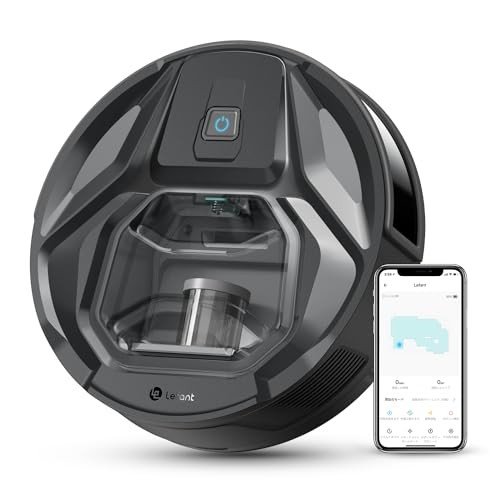The Rise of Autonomous Vacuums: Revolutionizing Home Cleaning
In the age of technology, household chores are ending up being increasingly automated, and one of the most notable developments in this realm is the autonomous vacuum. These intelligent cleaning robotics are designed to ease the drudgery of conventional vacuuming, making them popular amongst time-strapped families. robot vacuum explores the development, performance, benefits, and constraints of autonomous vacuums, in addition to a contrast of some of the leading designs on the market today.
What is an Autonomous Vacuum?
An autonomous vacuum, likewise known as a robotic vacuum cleaner, is a little, automatic device that browses through your home to tidy floorings without human intervention. Equipped with sensing units, video cameras, and advanced software, these vacuums can spot obstacles, avoid stairs, and optimize cleaning paths. They generally operate from a rechargeable battery, returning to their charging stations when their power is low or when cleaning jobs are completed.
Secret Features of Autonomous Vacuums
Smart Navigation:
- Utilizes sensors and algorithms to map the environment.
- Can navigate complex designs and prevent challenges.
Scheduling:
- Allows users to set cleaning times.
- Can run when your house is empty, guaranteeing minimal interruption.
Connectivity:
- Many models connect to Wi-Fi, permitting app control and combination with smart home systems.
- Users can personalize settings, check cleaning status, and get alerts through mobile applications.
Suction Power:
- Varies between designs; some deal adjustable suction settings for various floor types.
- High-end models feature effective suction capable of picking up animal hair and deep dirt.
Floor Type Adaptability:
- Capable of cleaning carpets, hardwood, tiles, and more.
- Certain designs concentrate on tailored cleaning for multiple surface areas.
The Advantages of Using Autonomous Vacuums
1. Time-Saving
One of the most considerable benefits of autonomous vacuums is the quantity of time they conserve. Rather than spending hours pushing a conventional vacuum, homeowners can set robotic vacuums to tidy while they are taken part in other activities.
2. Constant Cleaning Schedule
With the ability to arrange cleanings, these vacuums make sure that areas are frequently cleaned up, leading to a cleaner home overall. Regular cleaning assists keep indoor air quality, especially for families with allergic reactions or asthma.
3. Smart Home Integration
Lots of autonomous vacuums can be integrated with clever home systems for seamless operation. Property owners can control their vacuums through voice commands through devices like Amazon Alexa or Google Assistant, improving user benefit.
4. Compact Design
The slim profile of these gadgets permits them to clean up under furnishings, such as sofas and beds, where traditional vacuums frequently can not reach.
5. Pet-Friendly
For pet owners, autonomous vacuums can be a game-changer, as they are typically equipped with specialized features for choosing up family pet hair and dander, adding to a cleaner home environment.
Limitations of Autonomous Vacuums
In spite of their many advantages, autonomous vacuums also have constraints:
1. Restricted Deep Cleaning
While these vacuums efficiently maintain tidiness, they might not replace the efficiency of a deep clean offered by traditional vacuums, particularly for greatly soiled areas.
2. Capacity Constraints
The majority of autonomous vacuums come with little dust bins that require to be emptied often, specifically in larger homes or homes with family pets. This can be a hassle for some users.
3. Navigation Challenges
Although navigation innovation is continually enhancing, some designs might fight with specific designs, particularly complex areas with numerous barriers or extremely little rooms.
4. Cost Point
While prices have become more available, high-end designs can still be rather expensive, posturing a barrier for some consumers.
Comparison of Top Autonomous Vacuum Models
| Design | Smart Features | Battery Life | Suction Strength | Rate Range |
|---|---|---|---|---|
| iRobot Roomba 980 | App Control, Voice Assistant | 120 minutes | 1700 Pa | ₤ 700 - ₤ 900 |
| Roborock S6 MaxV | Advanced Mapping, Connectable | 180 minutes | 2500 Pa | ₤ 600 - ₤ 800 |
| Ecovacs Deebot Ozmo | Mopping, Smart Home | 110 minutes | 1500 Pa | ₤ 450 - ₤ 700 |
| Neato Botvac D7 | Laser Navigation, Custom Zones | 120 minutes | 2000 Pa | ₤ 800 - ₤ 900 |
| Shark IQ Robot | Self-Emptying Base, Smart Map | 90 minutes | 1500 Pa | ₤ 400 - ₤ 600 |
Noteworthy Takeaways
- Smart Features: Consumers ought to prioritize designs offering robust smart functions for benefit and performance.
- Battery Life: A longer battery life is helpful for bigger home.
- Suction Strength: Depending on household requirements, differing suction power can significantly impact cleaning efficiency.
Frequently Asked Questions about Autonomous Vacuums
Q1: How do I keep my autonomous vacuum?
A: Regular maintenance consists of cleaning the brushes, clearing the dustbin, and examining for blockages. Additionally, keeping the sensing units clean will help preserve navigation precision.
Q2: Can robotic vacuums tidy rugs and carpets?
A: Yes, lots of robotic vacuums are designed to efficiently clean both hard surfaces and carpets. Nevertheless, suction power might differ based on the design.
Q3: Do robotic vacuums need Wi-Fi?
A: While lots of autonomous vacuums benefit from Wi-Fi connection for app control and updates, some models can operate independently without a wireless connection.
Q4: How frequently should I run my robotic vacuum?
A: It depends on your living circumstance, but running it numerous times a week is often suggested, especially for homes with animals.
In conclusion, autonomous vacuums represent a considerable development in home cleaning innovation, appealing convenience and effectiveness. While these gadgets might not entirely change conventional vacuum, they are unquestionably helpful in keeping a clean living environment. As technology continues to develop, the future of home cleaning looks promising, and these devices are at the forefront of the revolution.

